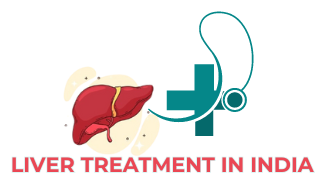Overview of Integrative medicine and liver health
Integrative medicine is a holistic approach to liver care for healthcare that combines conventional medical treatments with alternative therapies, such as acupuncture, yoga, and herbal remedies. Its importance for liver health lies in its focus on treating the root causes of health issues rather than just the symptoms. Integrative medicine can help improve liver function by addressing factors like diet, stress, and environmental toxins that can impact liver health. Additionally, alternative therapies like acupuncture and herbal remedies can support liver function and promote overall well-being.
Difference between traditional medicine and integrative medicine
Traditional Medicine for liver Health
- Traditional medicine primarily refers to conventional medical practices that are based on scientific evidence and are typically used as mainstream treatments in healthcare.
- Focuses on the diagnosis, treatment, and prevention of diseases using pharmaceuticals, surgeries, and other standard medical interventions established through rigorous scientific research.
- Places emphasis on evidence-based treatments that have been tested through clinical trials and scientific research to validate their safety and efficacy.
Integrative Medicine for liver Health
- Integrative medicine is an approach to healthcare that combines conventional medical treatments with evidence-based complementary therapies and practices, recognizing the importance of addressing the whole person—mind, body, and spirit—in the prevention and treatment of disease.
- Focuses not only on disease management but also on improving overall well-being through personalized care that considers various factors beyond just physical symptoms, such as lifestyle, stress, nutrition, and mind-body practices.
- Incorporates evidence-based complementary therapies and practices that have shown potential benefits for overall health and wellness, but may not always have the same level of scientific validation as conventional treatments.
Integrative Approaches to Liver Health
Integrative approaches for liver health encompass a wide range of strategies that aim to support liver function, prevent liver diseases, and complement conventional medical treatments. These approaches are holistic in nature, considering not only the physical health of the liver but also factors such as nutrition, stress management, and lifestyle modifications. Some key integrative approaches to liver health include:
Diet and nutrition
Integrative medicine emphasizes the importance of a balanced diet to support liver health. This includes consuming nutrient-dense foods such as fruits, vegetables, whole grains, lean proteins, and healthy fats. Specific dietary components like antioxidants, vitamin E, and omega-3 fatty acids may be emphasized to support liver function.
Herbal supplements and remedies
Certain herbs and nutritional supplements have been studied for their potential benefits in supporting liver health. Milk thistle, turmeric, N-acetylcysteine (NAC), and certain vitamins such as vitamin E are examples of supplements that may be used to aid liver function under the guidance of a healthcare professional.
Acupuncture
In traditional Chinese medicine, it’s believed that the body’s vital energy, known as “qi,” flows along specific pathways or meridians. Acupuncture aims to balance the flow of qi, potentially addressing imbalances that may affect liver function. Acupuncture sessions may promote relaxation and help reduce stress and anxiety, both of which can impact liver health. By triggering the release of endorphins and promoting a sense of calm, acupuncture can contribute to stress management.
Meditation and stress management
Chronic stress can lead to an increase in cortisol levels, which may impact liver function over time. Meditation and mindfulness practices have been shown to reduce cortisol levels and promote a sense of relaxation, potentially mitigating stress-related effects on the liver. Stress can often lead to disrupted sleep patterns, and lack of adequate sleep can impact liver health. Meditation and stress reduction techniques can promote better sleep quality, allowing for optimal recovery and maintenance of overall health, including liver function.
Benefits of integrative medicine for liver health
Integrative medicine offers a range of potential benefits for liver health by addressing the overall well-being of an individual and employing a holistic approach to liver care. Some of the key benefits of integrative medicine for liver health include:
Improving digestion and detoxification
Improving digestion is key for liver health, as the liver plays a crucial role in processing nutrients from food and eliminating toxins. By optimizing digestion through dietary changes, probiotics, and other natural remedies, integrative medicine can help reduce the burden on the liver and improve overall gut health. Detoxification is another important aspect of liver health, as the liver is responsible for filtering and eliminating harmful substances from the body. Integrative medicine approaches detoxification holistically, supporting the liver’s natural detox processes through techniques like liver cleanses, proper hydration, and targeted supplementation.
Boosting overall immunity
- Mind-body modalities encouraged by integrative medicine, such as meditation and deep breathing exercises, have been associated with immune system regulation. By promoting relaxation and reducing stress, these practices may support overall immunity, potentially benefiting the liver in the process.
- Regular exercise is a cornerstone of integrative medicine and is known to have immune-modulating effects. By promoting physical activity tailored to individual health needs, integrative medicine can positively influence immune function, potentially supporting liver health as well.
Balancing hormones and mood
Hormonal imbalances can impact liver function, as the liver plays a crucial role in metabolizing hormones. Integrative medicine holistic approach to liver care such as acupuncture, herbal medicine, and dietary changes can help regulate hormones, in turn supporting liver health. Additionally, mood disorders such as stress, anxiety, and depression can have a negative impact on liver function. Integrative therapies like mindfulness meditation, yoga, and biofeedback can help manage these mood disorders, reducing stress on the liver and promoting overall well-being. By addressing hormonal imbalances and mood disorders through integrative medicine, individuals can support their liver health and optimize overall wellness.
Adopting an integrative holistic approach to liver care allows us to treat the entire person – body, mind, and spirit – rather than just the symptoms of liver disease. By combining conventional medical therapies with complementary practices like nutrition, meditation, and acupuncture, we can create a truly holistic treatment plan that addresses the complex needs of the liver. At Liver Treatment in India, we are committed to providing patients with a comprehensive range of treatments information, from conventional surgery and medication to natural therapies like herbal remedies and traditional Chinese medicine, all under the guidance of top liver transplant specialists across the country..

